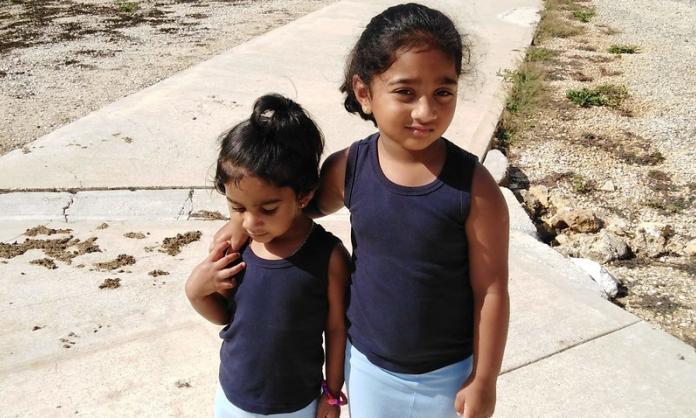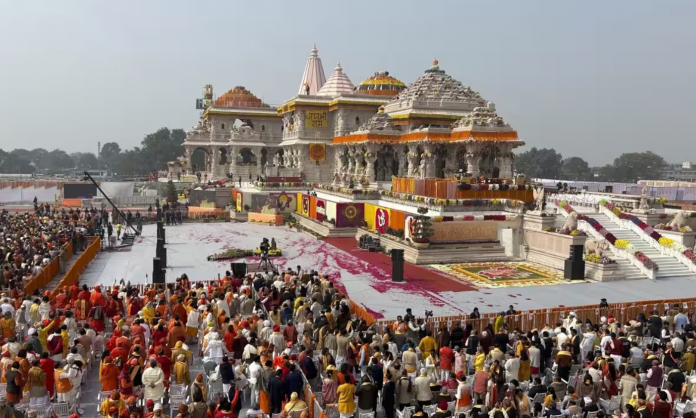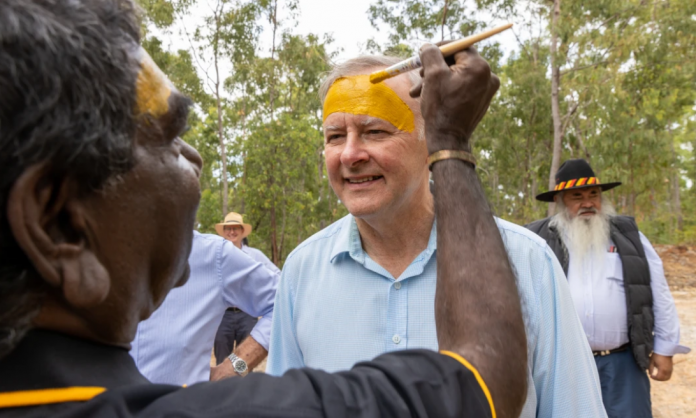A Federal Court ruling today that a two-year-old Tamil child was “not afforded procedural fairness” is a small victory for a refugee family from Biloela, Queensland, and an acknowledgement that they have been poorly treated by the federal government. An injunction against their deportation remains in place.
But Justice Mark Moshinsky also ruled that Tharunicaa did not have the right to have her application for asylum automatically assessed. She and her sister Kopika were both born here. Their parents, Priya and Nades, met in Australia after arriving as asylum seekers.
The family is still in a legal battle to be returned to their home. They have been detained for more than two years – first in Melbourne and on Christmas Island since August last year – after they were taken from their home in an early morning raid. Tharunicaa and Kopika are wasting away in detention. They are confused and scared on Christmas Island. They are not eating properly.
The government has spent millions of dollars attempting to deport the family to Sri Lanka, where Tamil people face ongoing persecution.
In the current pandemic situation, international travel across the world has been severely restricted. Governments everywhere are dealing with major health and economic crises. Australia is no different. Devoting so many resources to deporting this one family not only imperils their future, it is a waste of taxpayer money – legal fees, staff at the Christmas Island detention centre, a charter flight to take them to Sri Lanka – that could be spent protecting lives and livelihoods in this current crisis.
Right now, the whole world is focused on saving lives. Yet our government remains focused on destroying the lives of this family. This must end. It’s time for the government to let them live in peace. It should concentrate on the pandemic and leave this family alone.
--------------------
Priya fled Sri Lanka after witnessing her fiancé burned alive by the Sri Lankan Army. She and Nades have well-founded fears for their safety if they are deported back into the hands of the Sri Lankan government.
The situation in the country continues to deteriorate for Tamils. The landslide victory of new president Gotabaya Rajapaksa in last November’s elections is just one example. Gotabaya oversaw the mass killings of Tamils and the operations of paramilitary death squads as Defence Secretary in 2009. As Human Rights Watch South Asia Director Meenakshi Ganguly noted in January: “Gotabaya Rajapaksa and senior appointees linked to wartime abuses are wasting no time dismantling the human rights gains of recent years”.
Douglas Devanada, a former paramilitary leader, has been appointed to Gotabaya’s cabinet. Devanada trafficked vulnerable Tamil children into forced labour and child prostitution under Gotabaya’s watch, according to US diplomatic sources. And Gotabaya recently pardoned Sri Lankan soldier Sunil Rathnayake for the brutal torture and massacre of eight Tamils, including three teenagers and a five-year-old child. The eight were returning to inspect their homes after being displaced by war.
The Sri Lankan government is committed to maintaining the military occupation in Tamil-majority areas in the north and east of Sri Lanka, as well as the draconian Prevention of Terrorism Act.
Ben Emmerson, former UN Special Rapporteur on the promotion and protection of human rights while countering terrorism, noted: “All the evidence points to the fact that the use of torture was ‘routine and endemic’ against people held under the deeply-flawed Prevention of Terrorism Act. The Tamil community has borne the brunt of the state’s well-oiled torture apparatus, as the law is used disproportionately against them”.
Aran Mylvaganam is a spokesperson for the Tamil Refugee Council.










